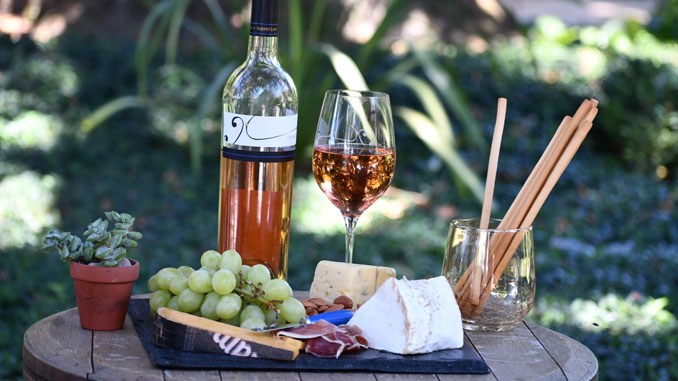
In Lodi wine country, sustainability is more than a marketing term. It’s a way of life. Sustainability encompasses all aspects of Lodi wine country. From the vineyard to the bottle, our local farmers and winemakers continue to lead the nation in their efforts to make sustainability a top priority.
You see, most local farmers have been tending the soils here in Lodi wine country for generations. As stewards of the land, you can rest assured they want to preserve it for future generations, which is why, the folks behind our local wine scene created the LODI RULES for Sustainable Winegrowing program in 2005. It is California’s original sustainable winegrowing program, created by farmers and accredited by world-renowned scientists.
But what does the LODI RULES green seal actually mean? It means the grapes marked with its crest are farmed and certified sustainable by a third party; it means they are grown with a commitment to rigorous, scientifically sound sustainable winegrowing. Collectively as a wine region, the growers, winemakers, viticulturists, and environmentalists in Lodi with Lodi Rules stamps of approval all agree to farm responsibly and to ensure the land is viable for future generations.
But you don’t have to take our word for it. We think Kevin Phillips, of famed Michael David Winery, puts it best. “Sustainability means leaving everything—people, places, etc.… as good or better than how we found it.”
In the Vineyard
You may not even realize the role LODI RULES plays in the way a vineyard is farmed. But the signs of this way of life are everywhere. Take for example the scattering of owl boxes towering above the plush vines. Why, oh why, would a farmer build barn owl boxes? It turns out, barn owls play a huge role in integrated pest management practices in farming. They are effective predators of rodents, which threaten a vineyard’s viability.
Or have you ever noticed the abundance of mustard blooming in vineyards each spring? This is a great example of another effective farming practice—the use of cover crops in the vineyard. Farmers plant legumes, grasses, and other selected crops between the rows or under the vines. The crops are then tilled into the land, improving soil quality, preventing erosion, and supporting the long-term health of a vineyard. It also reduces the cost of farming by reducing the need for herbicide applications on the vines. It’s incredible that with one simple practice, local farmers can improve the soil, reduce the need to use herbicides, and save money. It’s a win-win-win.
Some other sure-fire signs a farmer is putting the environment first—drip irrigation. Instead of wasting water with the old-school sprinkler systems, most modern vineyards utilize drip irrigation. Solar panels are often found dotting the landscape of Lodi’s vineyards, too. The ability to create energy harnessing the sun’s power is beneficial to both the farmer, the municipality, and the environment. Now check out our scavenger hunt to see how many signs of sustainability you can identify.
By the Numbers
There are over 47,000 acres of grapes grown under Lodi Rules. In fact, the program is used by many farmers outside of the Lodi AVA too, including over 22,000 acres enrolled in 12 other crush districts. There are also 550 acres enrolled internationally. And with over 150 wine labels bearing the LODI RULES or CALIFORNIA RULES seal, the number of wineries committed to the program is growing year over year.
Tasting and Touring Sustainable Lodi Wines
The bottom line is that LODI RULES is everywhere. And there are more than a dozen wineries incorporating their sustainability efforts in their wine tasting experiences.
One of the original framers of the Lodi Rules playbook, LangeTwins Family Winery and Vineyards, employs sustainability in every aspect of their operation. From water management to solar installations, Lange Twins priority has always been to connect people to the land through their wines. As industry leaders in sustainability, you can learn all about their farming practices through one of their detailed tasting experiences in the elegant Redwood Room. From restoration projects to the planting of native bushes and boxes for nesting wood ducks, the winery’s approach is both commendable and fascinating.
At Bokisch Vineyards, you can find one of the only vineyards in the region that is certified under both LODI RULES and CCOF Certified Organic. (California Certified Organic Farmers) programs. Talk about a commitment to the land on which they farm. Owner Markus Bokisch appreciates both programs for his over 2,000 acres. Their winemaker, Elyse Perry, tells us the green LODI RULES seal that graces every bottle Bokisch produces is evidence of their dedication to the land. “Our designation of the Lodi Rules Sustainably logos on our labels has branded our winery as a leader in the continued practice of sustainability.”
If you are looking for an award-winning wine tour with a focus on sustainability, be sure to check out Harney Lane Winery. Their Grape to Glass Tour received the top spot in USA Today’s 10 Best Reader’s Choice Award. And for good reason. As fifth generation farmers, owners Kyle and Jorja Lerner are committed to preserving the land they farm for future generations. One hundred percent of their grapes are sustainably grown, adhering to the regulations set forth by LODI RULES. The Grape to Glass Tour provides the opportunity to explore the Harney Lane grounds and vineyards while sampling the diverse wine portfolio.

